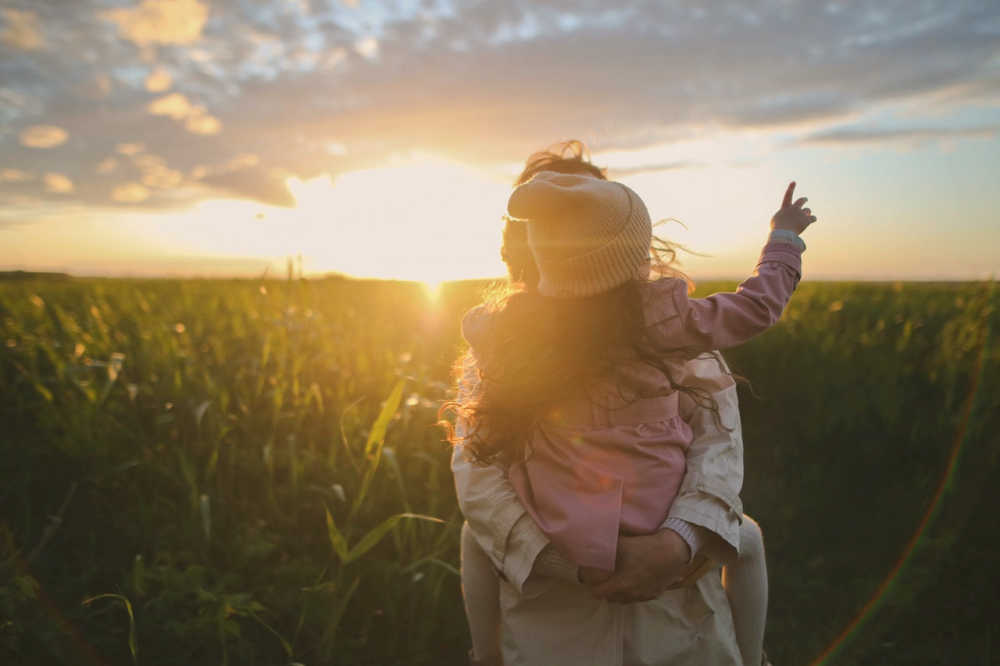Explaining mental illness to a child can be a bit challenging. Young children don’t understand depression or anxiety as adults do and it can be difficult to find the words to explain it to them. As a result, many parents opt not to bring up the issue reasoning that it’s better not to confuse or stress their kids.
What many parents don’t realize is that kids are actually very observant and they will notice if anything is out of the ordinary. So if you, your spouse or anyone in your family is struggling with mental illness, your children are bound to have noticed. They may be confused and even frightened by the changes in the person’s behavior, especially if that adult holds an important place in their lives.
One of the most important things you can do to support your children in this instance is to help them understand mental illness. Taking time to address their questions and concerns will help them understand the illness. This will make it less frightening and mysterious, and give them the tools they need to cope.
Having an open, honest discussion will help your child trust you and will clear up some of the misconceptions they might have about the situation. It will also help to decrease the anxiety that comes from uncertainty. Being informed also lessens the anger, confusion and surprise they might feel if they are left to discover the illness on their own, or if someone else confronts them with negative comments about their ill parent.
Ideas to get the conversation going.
Starting the conversation on mental health early can give your children a better idea of what mental illness is all about. It is a powerful way to reduce the stigma surrounding it.
Here are some tips to help you get the conversation going:
1. Start with yourself.
Before talking to your child, try to get as much information as you can about the illness your important person is struggling with. The more you know, the more confident you’ll feel and the better placed you’ll be to answer your child’s questions.
It’s also important to be mindful of your own attitudes towards mental illness, and how this might filter through to your child. If you feel that mental illness is shameful or someone’s fault, your child will pick up on this regardless of what else you tell them. This will only add to any confusion, fear or anxiety they have about what they see happening to their loved person.
2. Pick an opportune time to talk.
In order to improve communication with your child and get them to open up to you, you need to be flexible about where and when this conversation takes place. Some kids feel more comfortable talking and asking questions when playing or doing something else while others prefer a face-to-face sit-down talk.
A news story, series or movie where a character has mental health challenges can be the perfect conversation starter to delve deeper into the issue. You can ask questions, find out how your kid feels and let the conversation flow from there.
3. Make the conversation age-appropriate.
When talking with your child about mental illness, it’s important to tailor the conversation to their age and developmental stage. To enhance their understanding, use language, explanations, and examples that they can relate to.
For instance, you might say this to a 5-year old, “Remember when you had that sore throat and you were all angry and grumpy with us? You were like that because you were unwell. Well, mommy isn’t feeling well right now, that’s why she’s acting grouchy and crying a lot. She still loves us, but she just can’t show it right now.”
Kids usually have their own interpretation of what’s happening so it’s a good idea to ask how they explain their parent’s behavior, listen empathetically then build on what they say while correcting any misconceptions they have.
4. Allay your child’s fears.
Children who live with ill parents often experience anger and even guilt. They may feel that life is unfair to them, then feel guilty for having those emotions. Some may even feel somehow responsible for their parent’s illness.
Dealing with such feelings is crucial in order to help them live happier lives. They need to understand that their mommy’s or daddy’s illness isn’t caused by anyone’s actions. Sometimes life just happens that way and it wasn’t because they were bad kids. Emphasize that it’s normal and ok to feel sad, angry, embarrassed or frustrated and encourage them to find healthy ways to express those feelings.
Remember your kids will take their cue from you so the more you share your feelings, the more comfortable they’ll be talking about theirs.
5. Help them come up with coping strategies.
Keeping your routine consistent, especially when living with someone with a mental illness, will help your children feel safe. Older children will feel better and more confident if they have a plan of action in case something happens. So make sure your children have a list of people to call or know where to go to get help if need be. You can also help them identify a trusted adult they can confide in whenever they want to talk.
Additionally, take time to help them come up with appropriate responses should other kids or adults ask them about their loved one’s illness. Children can be especially cruel to each other so it’s better to prepare your child for teasing from other kids. Practicing how to explain the illness and what they can say will be of great help. For example, your child can say, “My dad has an illness that makes him do that. I wouldn’t make fun of your dad if he was sick so please don’t make fun of mine.”
Finally …
Finally, if you’re living with someone struggling with mental challenges, ask for help. You can join a support group, ask the child’s grandparents or other relatives to talk to your child or even get pointers from a mental health specialist.
While you might not get the words exactly right the first time, having an ongoing conversation about mental illness with your child will help them cope better and live a more positive life.




Leave a Reply